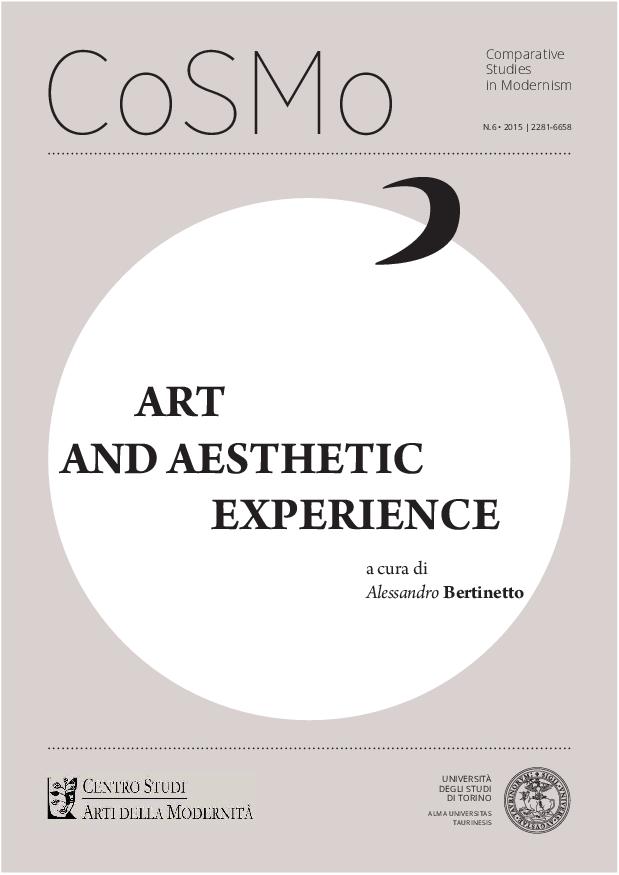Aesthetic Experience as an Aspect of Interpretive Activities
DOI:
https://doi.org/10.13135/2281-6658/847Parole chiave:
Aesthetic Experience, Interpretation, Philosophy of ArtAbstract
Every conception of aesthetic experience has to deal with two antagonistic aspects that are inherent to the very notion itself. I will try to outline these two aspects by referring to Kant’s explanation of aesthetic experience, which is paradigmatic in this regard (as it is in many regards). On the one hand, Kant conceives of aesthetic experiences as an experience in which the subject is passive. According to Kant, the object affects the subject in a specific way, namely by giving rise to a free play between the imagination and the understanding. On the other hand, Kant claims that the way the subject is affected is relevant to the subject itself. To experience a free play of imagination and understanding is to experience that cognition is possible, for cognition presupposes that imagination and understanding work together. In Kant’s view, aesthetic experiences are experiences of the possibility of cognition and are hence valuable for the subject experiencing them. I may articulate the antagonism between these two aspects that I have conceived of with Kant by asking the question: How is it possible that a subject can learn something about itself through an experience in which it is ultimately passive?
Downloads
##submission.downloads##
Pubblicato
Fascicolo
Sezione
Licenza
Gli autori mantengono i diritti sulla loro opera e cedono alla rivista il diritto di prima pubblicazione dell'opera, contemporaneamente licenziata sotto una Licenza Creative Commons - Attribuzione che permette ad altri di condividere l'opera indicando la paternità intellettuale e la prima pubblicazione su questa rivista.







